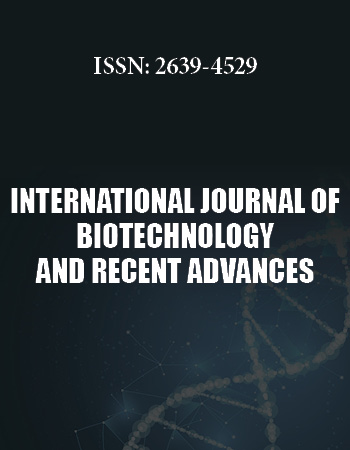International Biotechnology and Research Conference
April 25-27, 2018 Rome, Italy
Development of the Method of Isolation, Culturing and Assessment of Metabolic Ability of Bacteria from Species Desulfovibrio Desulfuricans
Faculty of Food Science and Nutrition, Poznan University of Life Sciences, Poland
Bacteria of the genus Desulfovibrio are gram-negative absolute an aerobic microorganisms, usually rod-shaped. They have the ability to carry out the processes of dissimilatory reduction of sulphates to hydrogensulphide taking part in the sulfur cycle in nature. A typical species of this genus is Desulfovibrio desulfuricans, occurring mainly in deeper layers of soil, sediments of water, industrial sewage, oilfields as well asanimal and human stool, sometimes causing infections of the digestive system.
The aim of the work was to develop a procedure for the isolation of Desulfovibrio desulfuricans from environmental samples using various selection factors. In addition, the metabolism of isolates have been tested, including their ability to grow in substrates with various carbon sources and the utilization of diesel fuel as the only carbon source as well as the ability to reduce sulphates. The tests were carried out under relatively anaerobic conditions using soil samples contaminated with petroleum derivatives. Tests showing metabolic abilities were carried out in bioreactors maintaining sterility regimes and appropriate gas conditions. The increase in biomass concentration, substrate loss and sulphate reductions were analyzed.
As a result of the work, Desulfovibrio desulfuricans monocultures were obtained using the antibiotic selection factor. The conducted culturing tests allowed for the selection of parameters allowing for an efficient biomass multiplication as well as the assessment of the influence of parameters such as pH, temperature, agitator speed and gas conditions on the metabolicconditions of Desulfovibrio desulfuricans. In addition, the ability of bacteria to utilize diesel oil and to reduce sulphate was analyzed.
Biography:
Katarzyna Ciemniak is currently a Ph.D. candidateat the Poznan University of Life Sciences. She completed her Engineerʼs and then Masterʼsdegree in Industrial Biotechnology at the Department of Biotechnology and Food Microbiology at Poznan University of Life Sciences, Poland. Since 2017 she has been working with Dr. hab. Daria Szymanowska – Powałowska in the field including pharmaceutical chemistry and microbiology, carrying out tests for bacterial resistance on complexes of antibiotics with cyclodextrins. Since the beginning of her doctoralstudies she has been participating in a project concerning research on the activity of Desulfovibrio desulfuricans bacteria in the process of decomposition of petroleum-derived waste.


